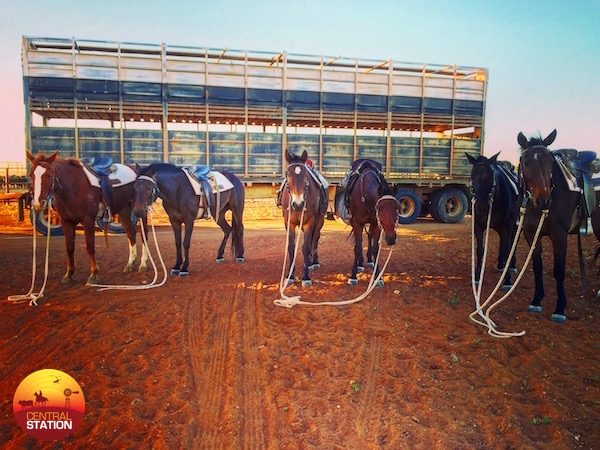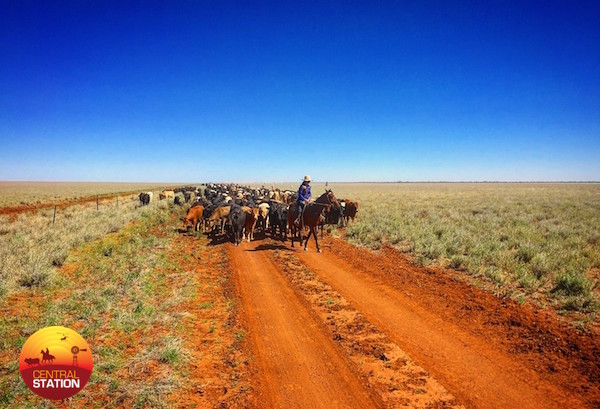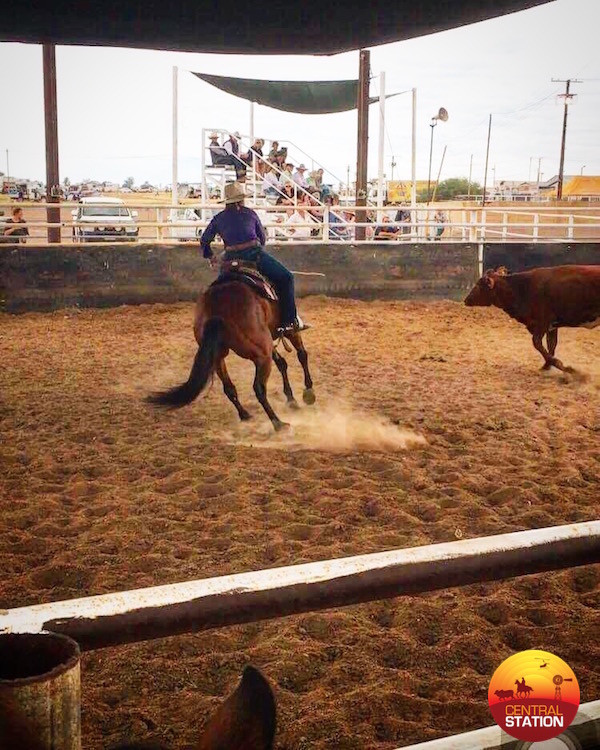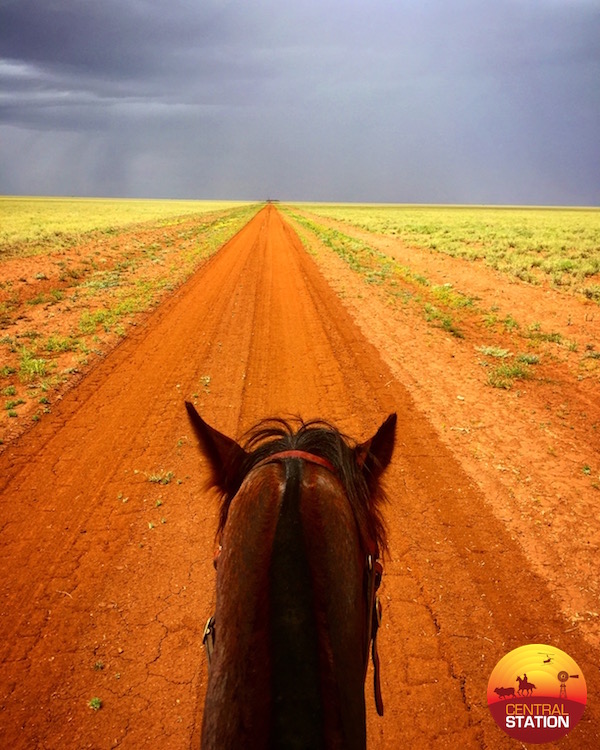From Arg to Lake Nash
Host: Lake Nash Station
Written by Lilly Marks – Station Hand, Argadargada Station.
My name is Lilly Marks, I originally come from central Queensland but work in the Northern Territory on Lake Nash Station which is situated on the Barkly Tablelands.
 Our beloved plant horses after a long day’s work.
Our beloved plant horses after a long day’s work.
I began my season at Argadargada (or Arg for short), the Lake Nash Station outstation, in late February as a first year jillaroo. I learnt about everything that I might need to know working on a cattle station, like welding, fixing fences, maintaining vehicles and motorbikes, shoeing horses, and working with cattle. I also went on bore runs and quickly became proficient at cleaning troughs. I learnt how to rescue myself and my bogged Landcruiser with just sticks and old red ant hills, but my favourite part is the horses. I’ve always adored horses and I was allocated two plant horses when I arrived at Arg, a beautiful bay gelding called Willie Bookie and a brown mare named Chilli. I worked at Arg through to mid-July until I moved over to the main station, Lake Nash.
Lake Nash has two separate camps, stock camp and weaner camp. Stock camp musters the cattle and draft off anything that needs to come out of that paddock. That includes drafting weaners off their mothers, and that’s where weaner camp comes in – the weaners get trucked to the weaner yards, where the camp educates the weaners, processes them, and then sends them out to their new paddocks.
I was placed in the stock camp which is usually made up of around eight people, with the head stockman who runs the show. Mustering is the most exhilarating job on the station. The helicopter will go around and round up the cattle and put them all on water, then stock camp comes in when the chopper has finished, gathers them up and begins the long walk to the yards for drafting. You’ll have cattle break away from the mob on the walk and it’s your job to hold onto your horse or bike and get them back and keep them all together. Once the cattle are in the yards they are generally left on water overnight to settle down until the next morning for drafting.

For the paddocks that are too far away to travel back and forth from the homestead each day, stock camp usually set up a camp and stay out in the paddock until the mustering in that area is done. They take a big camp truck filled with cooking materials and food, as well as a trailer carrying fuel, drinking water, and a generator. Everyone packs their swags and set up around the camp. There’s nothing that comes close to sitting around the fire with good work mates, a nice cold drink, and a laugh after a day at work.
We attend as many campdrafts and rodeos as we can if we haven’t got too much on at the station. Most of us compete in drafts on our assigned horses and some of us even get into the rodeo. My first time drafting was at Brunette Downs and I’d nominated my mare Chilli for a few drafts, but two days before the draft she went lame, so I had to ride my gelding, Willie Bookie instead and he hadn’t had any work all year! So I rode him late one afternoon and took him to Brunette, and then two days later, on my third time ever riding this horse, we scored 5th place in our first draft in the “Jack & Jill Draft”. I made it around two pegs and got so giddy I had gotten so far I forgot about the final gate and missed it by inches! I was stunned and incredibly overjoyed!

I am really content here at Lake Nash, the people I work with are amazing, I adore my horses, the work is always challenging. I just love working here. The days are long, hard, and sometimes frustrating but at the end of the day, I couldn’t imagine wanting to be anywhere else or doing anything other than what I’m doing now.

